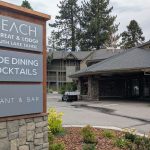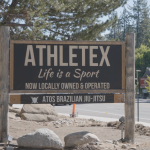Cannabis tax rate is reduced to 3%, eliminated for medical cannabis
SOUTH LAKE TAHOE, Calif. – On Tuesday, city council decided to reduce the cannabis tax rate to 3%, reduce it to 0% for medical cannabis and eliminate the public safety mitigation fee. Since several nonprofit organizations in the community came to call for funding, which has been done through a cannabis grant, city staff was directed to modify it for a future item.
Mayor Cody Bass recused himself and councilmember Scott Robbins was chosen to lead the council on the item.
In 2022, Measure G replaced the community benefit fee with the cannabis business and professions tax, and the city has collected about $900,000 annually in revenue from the four licensed businesses in city limits. These businesses also fund a public safety mitigation fee and public safety license fee, which pays for a dedicated officer who oversees cannabis regulatory compliance.
California had imposed an excise tax that increased cannabis retail sales tax from 15% to 19%, though Gov. Gavin Newsom signed a bill in late September to revert the tax back to 15% until 2028.
In a previous meeting, there was a request to lower the tax to 1%, which was supported by councilmember David Jinkens. However, their discussion then ultimately led to the item on the agenda.
Cannablue CEO Jess Carlson supported the cannabis tax rate lowering, though also acknowledged the nonprofit organizations who benefitted from the cannabis business and professions tax. “Their work is invaluable, and we all want to see those programs continue. But this revenue was originally intended for organizations directly tied to mitigating the negative effects of cannabis… and most are not connected to that purpose.”
Carlson also noted that the chief of police stated that there were not significant negative effects to mitigate after the opening of these businesses.
During the public comment period, Jude Wood of the Boys and Girls Club called for more sustainable funding for nonprofits in the city.
“Whether it’s affordable after-school care, caring for our local wildlife, housing our homeless or protecting the most vulnerable, our nonprofits provide essential services,” said Wood. “But rather than rely on one industry and one revenue stream, I encourage the council to consider a new grant or new program that uses sustainable and consistent funding to continue to support our nonprofits.”
Allison Hibbard, founder of the Mountain High Recovery Center, said that the public health data on cannabis was still unclear and had negative trends, especially for mental health and DUIs. “Lowering the tax rate alone does not eliminate the black market. Communities that succeed in reducing the black market invest in a coordinated enforcement, education and treatment options, not just tax cuts, like what’s being proposed today.”
Other public comments included support for better funding for nonprofits, requests for increased enforcement and speaking about the benefits of safe, legal marijuana sales.
During the council discussion, councilmember Keith Roberts said that he felt that the item was helping these four businesses disproportionately. “I’m a business minded councilman, I think that’s why I was put here. But that means supporting the vibrant community and helping development and encouraging growth. It’s not meant to be helping individual businesses. We’re picking winners and losers.”
Jinkens suggested a special tax to help fund nonprofits and NGOs in the community. He also expressed his worries about fentanyl exposure in the black market. “We treat no other businesses like this,” he said.
Robbins responded to Roberts, saying, “I don’t like it when governments pick winners, but I like it even less when governments pick losers. This is undoing the picking of a loser.” He also agreed that future funding for the NGOs and nonprofits should be more general, rather than tied to cannabis and mitigating its negative effects.
Robbins also shared his experience of attending Deputy Brian Ishmael’s funeral—an El Dorado County deputy who was shot while investigating an illegal cannabis operation. “The reason why there’s such an active illegal cannabis market is because the taxes are so high that illegal cannabis is still worth growing. It’s involved with cartels, and that comes with violence… the overtaxation has made it so the illegal version is so much more profitable, it’s worth shooting police officers over.”
He made the motion to reduce the rate, exempt medical cannabis, and eliminate the public safety mitigation fee, which was seconded by Jinkens. The motion passed and the cannabis grant funding item will be set for a future agenda item.
Eli Ramos is a reporter for Tahoe Daily Tribune. They are part of the 2024–26 cohort of California Local News Fellows through UC Berkeley.

Support Local Journalism

Support Local Journalism
Readers around the Lake Tahoe Basin and beyond make the Tahoe Tribune's work possible. Your financial contribution supports our efforts to deliver quality, locally relevant journalism.
Now more than ever, your support is critical to help us keep our community informed about the evolving coronavirus pandemic and the impact it is having locally. Every contribution, however large or small, will make a difference.
Your donation will help us continue to cover COVID-19 and our other vital local news.







